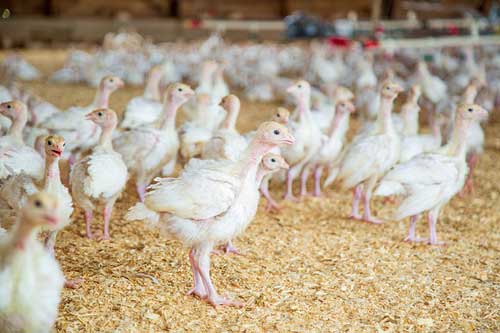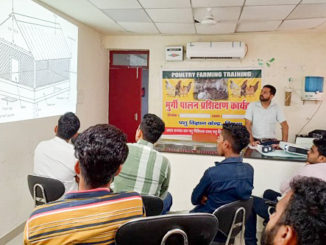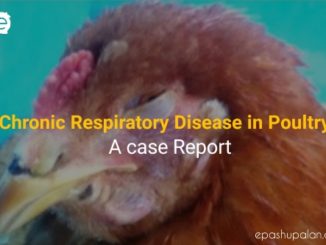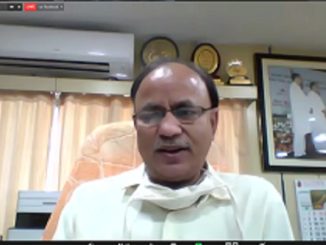Introduction
Poultry farming has been practiced by farmers since 2000 BC. However, since last two decades, the sector has shown an exemplary transformation in structure and operation. Today, poultry segment is one of the integral and fastest-growing subsector of agriculture sector in India.
Nutritive Value Of Eggs and Poultry Meat
The absolute source of proteins- eggs, are super-nutritious food items, containing essential fatty acids, amino acids, calcium, phosphorus, choline, folate, vitamins (A, B, D), iron, zinc etc. naturally. They also contain two newly recognized nutrients as ‘lutein’ and ‘zeaxanthin’, that have put them(eggs) into the category of ‘functional foods’. This incredibly nutritious “bird-fruit” (egg), promotes heart health, and significantly reduces chances of various diseases and infections. Moreover, its easier to incorporate eggs as a part of healthy diet.
Poultry meat is another nutritious source of protein. It also contains many B vitamins, PUFAs, iron, selenium, zinc etc. Consumption of poultry meat promotes heart health and prevent bone loss. Due to its vitamin content, chicken acts as metabolism booster also. Chicken is a ‘happy food’ due to its naturally occuring anti-depressant action, (acting by increasing serotonin levels in brain), and thereby reducing stress.
Status of Indian Poultry Industry
Presently, the nation has an investment-friendly and a developing environment for the poultry industry. With the phenomenal growth rate of 12-15% every year, Indian poultry industry is emanating and booming impactfully. India is occupying 3rd position in world’s largest egg producing countries and 6th position in broiler production globally. Indian Poultry Industry has earned the world’s 2nd largest market position by contributing nearly Rs.1.3 lakh crores to the country’s GDP directly (i.e. nearly 0.5% of nation’s total GDP).
In India, poultry meat is accepted by people of all communities, as there is no religious taboo associated with its consumption. Also it’s cheap as compared to its counterparts and other nutritional sources which further increases its acceptance by consumers.

Challenges ahead for Indian Poultry Sector
Presently, the accessibility of hygienic meat products is limited to a smaller fraction of customers, that too in urban areas. However, with increasing urbanization, it is needless to mention that most of the time hygienic and quality poultry products are demanded by consumers. So, firstly, adequate accessibility of hygienic and quality meat products for all areas of people must be focussed upon.
Secondly, changing lifestyles, growing restaurants and supermarkets; exposure to international cuisines; are creating higher standards for poultry integrators, meat retailers, and restaurant owners . Hence, for increasing end-customer acceptance, existing standards have to be raised and matched with the new-ones.
Thirdly, burgeoning middle-class population, different demographic profiles of families, diversified communities of the nation also imposes the challenge of managing affordable costs of poultry products.
Maneuverable pattern of consumption cycle of poultry products affects the broiler prices. The latter also get affected by the changing availability and hence costs of poultry feed ingredients such as maize and soya, throughout the year. So, there is flexible broiler meat rates throughout the year. Also, lack of skilled and trained workers in the sector is another challenge to the industry.
Moreover, Indian consumers have strong preference for fresh food items over frozen and processed products be fruits, vegetables, or poultry. So, another bigger challenge is to convince consumers that meat’s taste and its nutrient value both are largely undisturbed while processing.
Then, a continuous cold chain from processing plants to storage and to retail refrigeration will be required. So, the challenge of investment to upgrade the processing infrastructure is also existing. Also, in case, if processing segment grows, it will fear loss of employment among that section of wholesale traders and butchers of poultry meat, who could lose their jobs or buisness . This further emerges the challenge to create more employment opportunities.
Inclusive Way Heading Towards Self-Reliant Nation.
The road of ‘farm to fork’ runs from ‘producers to consumers’. Poultry industry, is also driven by many favourable socio-economic factors influencing the entire chain from production to consumption. Broiler and layer integrators, Breeding Companies, Feed producers, Value Added producers, Egg producers, poultry pharmaceutical companies must improvise the existing marketing-chain situation and condition. Economy of any market can only be maintained if its customers demands are adequately fulfilled . In a broader sense, the overall economy of any market is based on what and how much the consumers are demanding? So, first of all let’s just focus, ‘consumer-oriented’ aspect of the market in order to customer satisfaction with profitable returns.
Firstly, consumer’s attitude towards lacto-ovo-vegetarian and non-vegetarian diet including eggs and meat has to be addressed and changed by imparting information and education to the customers. This can be achieved by awareness campaigns and training programmes. This will ensure nutritional and health security along with financial security (by opening the doors for employment opportunities).
Secondly, for consumers demanding any poultry product e.g. chicken outlet, ready-to-eat chicken, egg trays etc. adequately well access to products should be there. To address this, super-markets, chicken centres, non-vegetarian chicken restaurants etc. should ensure proper arrangement for hygienic chicken outlets. Also, different traders using unhygienic transport vehicles and malpractices must be boycotted while, encouraging those who are using cleaner vehicles and hygienic practices. Similarly, Chicken or Egg outlets, from the shopkeepers or chicken centres who keep their areas or shop in unsanitary conditions must be boycotted.
Customers shops when they feel they’re benefitted. So, discounts, offers, speedy home deliveries of trending quality food items must be introduced in the market in order to attract consumers.
Also, there is a need to foster innovation by promoting entrepreneurial development. Although, with enlarged spectrum of entrepreneurship, entrepreneurial moves in the poultry industry are also flourishing. However, this pace of growth, has to be potentiated. Entrepreneurs of the nation, have to create wealth with their innovative desires and meet demands by creative transformations.
Also, introducing and using Genetically Modified (GM) feeds produced at lower costs (for higher yield of maize and soyabean crops) will be of major benefit to the poultry integrators. Similarly, regional poultry breeds with better FCR (Feed Conversion Ratio) must be raised at farms to increase income returns of the farm.
Moreover, the value addition of poultry products in the nation is still in the nascent stage of its development with less than 10% revenue share. Value-addition of products will add value over and above the actual price of the original raw product. So, numerous value-added products have to be brought into the market in order to generate profitable returns. Also, this will grab the attention of consumers due to varied options in food items. Few value-added egg products are egg powder, egg fluid, yolk fluid, egg-white powder etc. while few value-added meat products include meat patties, meat loaf, canned meat products, etc. which can be produced at processing plants.
Simultaneously, there is emanating need to enhance industrial growth by increasing processed meat marketing. Undoubtedly, a well-maintained and well-managed meat processing market will be required to raise value addition of products at large scale. This will be advantageous to both the producers and the consumers. These processed meat products will not only have increased shelf life but will also enable producers to absorb the demand shocks with improved inventory control practice. There are few other benefits like better taste, varied choices for the consumers, reduced chances of meat-borne disease transmission, increased life span and improved portability. Meat processing methods and advances in technology will also ensure confirm adherence to many quality requirements like for traceability, no antibiotics/chemicals, fresh-but-hygienic meat etc. Furthermore, with the growth of chicken processing industry many farmers, semi-skilled & skilled labour, intermediaries, and unemployed youth will be able to find different jobs in the new supply chain of products. Hence, employment opportunities will also emerge as a result of products processing.
Apart from that, industry stakeholders and government agencies will have to play transformative roles to enhance sector’s growth. A well-structured but flexible marketing plan will be required for the same. Initiatives from the government and investment from the buisnessmen’s side will pave the way for remarkable results. Favourable government schemes, policies and programmes will also aid to promote poultry farming even in economically weaker sections of the nation. This will also assist in bridging the socio-economic gap already existing in the Indian society. Also, strong international tie-ups will further attract foreign investments in the country.
Lastly, Chief Extension Officers, Chief Technical Officers, must be appointed regularly, for effectively reaching to all the stakeholders present in Value Chain of poultry, right from producers to consumers.
Improving products quality, products processing, entrepreneurial development, value addition and planned restructuring at production and processing level, will ensure food security, and cater consumer’s needs. Furthermore, these ways will bridge the existing gap of demand and supply chain and pave the way towards better returns and economic growth . So, we all have to work together in order to create a robust mechanism for the quantum growth of the sector. Proceeding with these ways will satisfy the consumers, amplify the business, multiply the profit and intensify the economic development for sure.
However, this transition is not going to be achieved overnight, — it may take few years for India to have a well-developed, hygienic, processed poultry meat market amongst the greatest contributor to the nation heading towards self–reliancy as ‘‘ATMANIRBHAR BHARAT’ .
References
- https://www.entrepreneur.com/article/282961
- www.pdonpoultry.org vision2050– Directorate of Poultry Research
- https://www.statista.com
- www.fao.org






Be the first to comment